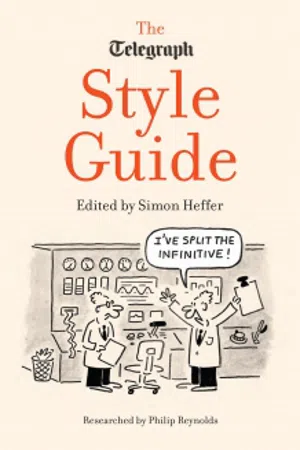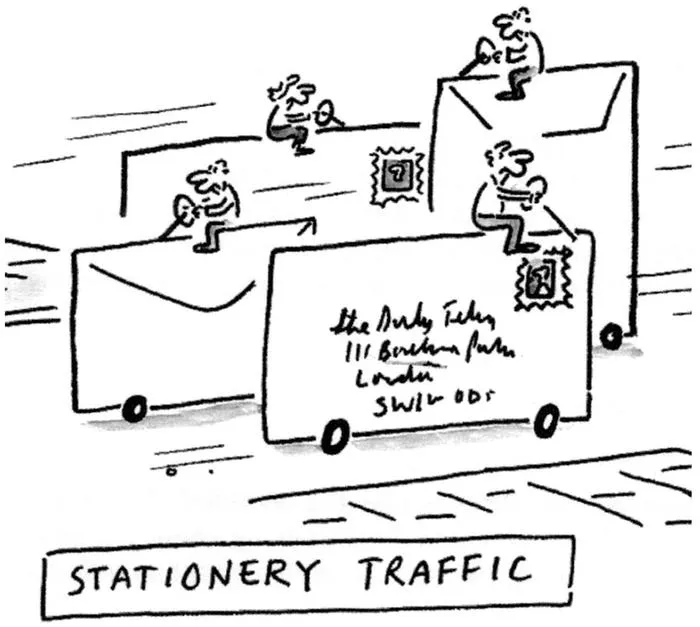GLOSSARY
A
a/an: an hour, heir; a hotel, historian (if the h is pronounced, use a).
abdicate, abnegate and abrogate all have different meanings. The first is to renounce high responsibilities; the second to deny oneself or someone else something; the third to abolish by an official proclamation. See also prevaricate.
Aborigine: note the cap A. Aboriginal in its specific use to describe the native Australian people, should also be capped.
accents: accents should be used on all foreign proper names (including anglicised names taking an accent – e.g. John Le Carré) and on some foreign words that have passed into regular English usage. (Be guided by the Oxford English Dictionary.) If quoting a foreign phrase that includes a word with an accent, use it. Avoid accents in headlines: they do not need to be used on capital letters (see also italics). The outlandishness of the accent should be limited only by the glyphs available.
accessary for a person (after the fact, for example); accessory for a thing.
Achilles’ heel
acid house parties
across: the slang usage of someone “being across” something to suggest he is cognisant of it is banned.
Act (law) takes a cap at every mention. So does a parliamentary Bill.
actress is the term we use for a female actor.
AD precedes the year (AD 1066). It follows centuries (fourth century AD), although centuries are assumed to be AD unless BC is used.
Addenbrooke’s hospital
addresses: the point of giving an address is usually to give the reader an idea of relative geography. If the person concerned lives in a small town it is sufficient to name that town and its county. In the case of a village it should be related to the nearest well-known town. If he or she lives in a large town or city use district names rather than boroughs or postal numbers. Do not presume that people outside London know where, for example, Eltham is. If it is impossible to clarify in an indirect reference, use Eltham, south-east London. Do not give house numbers or names unless there is a compelling reason or the address is famous or notorious (10 Downing Street, 10 Rillington Place). The words Street, Road, Avenue, etc are printed in full and capped.
adjectives. Distinguish between those that are objective, and may be used in news stories – literally descriptive words such as long, short, dark, bumpy, smooth, etc – and those that are subjective and should be avoided – stupid, ugly, craven, brilliant and so on.
adjournment line: in court cases this is now “The case/trial/hearing continues”.
adrenalin has no “e” on the end.
adultery requires one party to be married. Anything else is merely fornication.
adverbs are the necessary accompaniment of verbs. One does not do something quick, one does it quickly; one does not sell something cheap, one sells it cheaply; and so on.
advertisement, never ad. Advert is allowed when essential in heads.
adviser but advisory.
Aertex: trade name.
AEW (Airborne Early Warning) but Awacs (Airborne Warning and Control System). In full or with explanation at first mention.
Afrikaner for the people and culture; Afrikaans for the language.
ageing/ageist: not aging/agist.
Agence France Presse
ages: John Smith, 25, not John Smith, aged 25, but 25-year-old John Smith or John Smith, who is 25, are more appealing in narratives or descriptive writing. Avoid Mary Smith, nine, and John Smith, two months. Whereas the adjectival usage is “25-year-old John Smith”, the nominal usage is “John Smith, a 25 year-old”. The 25 year-old.
Aids: initial cap only. Since it is a condition rather than a disease, write “died of an Aids-related condition”, not “died of Aids”.
aircraft, which covers helicopters and airships, is the preferred usage, but planes is acceptable in headlines. Where possible be precise: airliner, fighter, trainer. Aircraft types: BAe-III, DC-1O, F-III, F-5E, Tu-144, MiG-21. But Boeing 727, Boeing 747-400. The use of hyphens between letters and figures is needed for consistency, although the use of hyphens by manufacturers follows no set pattern. Tornado becomes Tornados in the plural; the cap differentiates the name from the wind and enables us to follow RAF style. Concorde.
Airfix: trade name.
Albany, Piccadilly, not The Albany.
A-level: lc l.
alibi is not an excuse; it means proof of being elsewhere.
Alitalia
al-Jamaa al-lslamiyya: Egyptian terrorist group.
alleged is not a magic incantation against libel and contempt of court. It means said or claimed, but, because of its criminal connotations, can be unfair when used in reporting controversies. Alleged and kindred words are often redundant as in “Police charged him with allegedly murdering …”
alleluia: not hallelujah.
allies and allied take caps only in establish...





